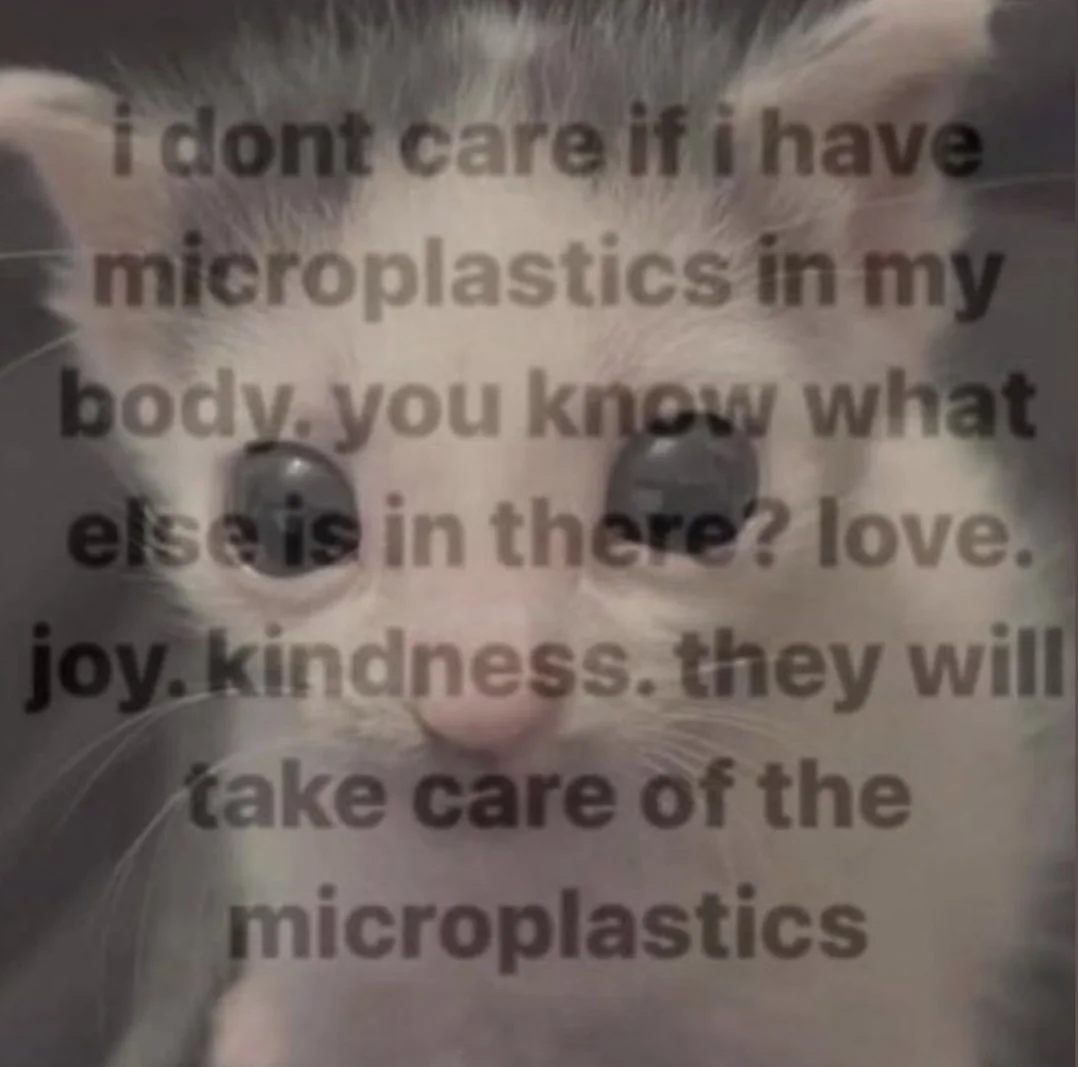uhhh pretty sure boiling doesn’t destroy microplastics
Correct. The article in question reports that boiling specifically hard water results in the coprecipitation of some portion of the microplastics with calcium carbonate. The precipitate then settles out, and the depleted bulk solution can be decanted to separate it from the MPs.
This is true but the article title is very misleading. It gives the impression that you can just boil your water first and then drink it and you will have a decreased intake of microplastics. “Boil your water before drinking” is very common in many parts of the world to prevent infectious disease, it means boiling a few liters for 10 minutes or so before use. In reality if you do that the precipitate will be in suspension, such as when decanting in a normal way rather than very carefully to keep (nearly invisible) sediment out, and you’ll still drink it.
Sorry for the link, but many filters will help.
https://www.popsci.com/environment/microplastics-water-filter-pollution/
Edit: I agree with you about boiling. I just like adding information.
It’s okay - this isn’t Reddit, we actually enjoy factual information here. Thanks for sharing:-).
Obama: bans microplastic beads
orange parasite: lifts ban on asbestos
Idiots: bOtH pArTiEs ArE tHe SaMe LoL aMiRiTe
How dare you not share the reference in a link too!
The CaCO3 concentration where boiling was most effective (>80% of the measured polymers removed) was >120 mg/L. This is hard water, so if your local area doesn’t have particularly hard water, this method won’t be effective.
A very general guide for the US on hard water levels by state.
so that suggests you may need to add calcium carbonate to your water first.
Yes, we just need to install water hardener systems rather than softeners to boil out the plastics!
I’m curious how effective typical household water filtration systems are in comparison. I’d expect RO systems would be effective at least.
Ah fuck we have NANOPLASTICS now?
Wake me when they release picoplastics

Why need to boil it? Is the tap water that bad otherwise?
The effects of microplastics(/nanoplastics) on humans aren’t fully understood yet. We mostly know that they are now everywhere, and are being linked to a number of health issues.
This article suggests that boiling hard tapwater can reduce the intake of microplastics via the formed “scale” trapping the plastic particles.
If that’s the Chinese study you also have to run it through a coffee filter.
Gotta season your microplastics with more microplastics.
so it melts the plastics into bigger pieces or what
The heat makes them more malleable so enzymes can attach and help break them down into super calories.
So the 0 calorie label on water is now a lie?
lmao look at the AI-generated journal cover.









